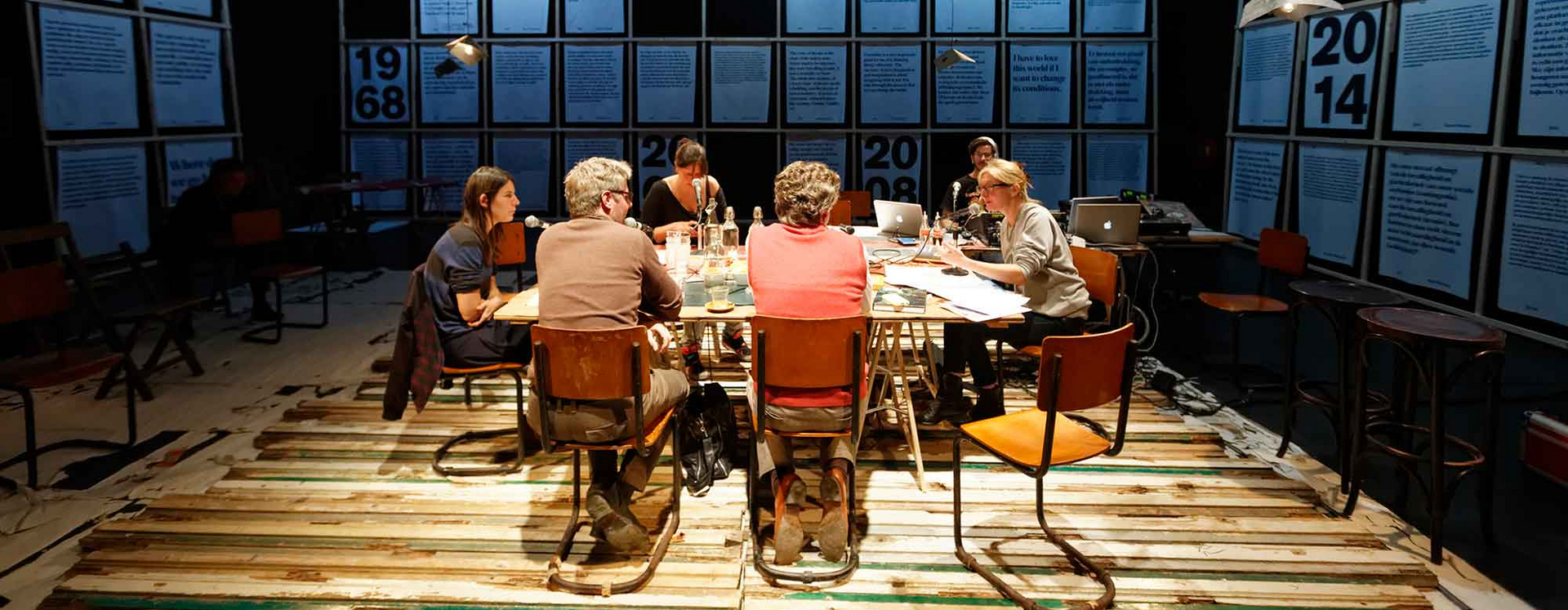Edit Kaldor

Photo: Jean van Lingen
Edit Kaldor (H/U.S./NL) is a theatre-maker, writer and dramaturge based in Amsterdam. She is recognised internationally as a unique voice in the contemporary theatre landscape. She works with nonprofessional performers, often over a long period of time, and integrates in her work the use of various digital media, including the development of new software for the performances.
Kaldor studied literature and theatre at Columbia University in New York, University College, London, and DasArts, Amsterdam. Her work is characterized by a specific combination of conceptual, formally-aware approach to theatre with a personal tone and a social dimension. Her pieces, e.g. Or Press Escape (2003), Point Blank (2007), C’est du chinois (2010) One Hour (2012), Woe (2013) and Inventory of Powerlessness (2013-16) have been presented at theatres, festivals and visual arts venues in over 30 countries in Europe, the Americas, Asia and North-Africa.
Kaldor is a tutor at DAS Theatre (Master of Theatre at the Amsterdam University of the Arts) and has taught, lectured and given master classes in arts schools in the Netherlands, Belgium, Norway, Germany, and Denmark.
research
The focus of my artistic work of the past years has been to explore the possibilities of participatory theatre and to bring social involvement and curiosity into the investigation of what the function of theatre and live performance can be, both in terms of the process and the actual live event. Searching for the conceptual and formal frameworks that can serve as the common ground and shared point of departure for both those who took part in the creation process, as well as for the spectators, has been a key aspect of these working processes. In the coming research I wish to reflect on and take further this practical trajectory, to open it up and let it be informed both by specific practices of other artists engaged in similar investigations, as well as by theoretical sources and reflections. The aim is, in the first instance, to map out the territory, and then, as a next step, to devise frames for developing concrete theatrical tools, strategies and methods for collaborative artistic processes between theatre-makers and people from other walks of life, especially those in vulnerable socio-economical situations. Besides creating the theoretical context, in which aesthetic, social, political and ethical considerations intertwine and collide, the research consists of interviews and working visits with other practitioners, and an active laboratory set-up for proposing, trying out and developing working tools and methodologies for collaborative creation processes in the theatre and performance practice.
